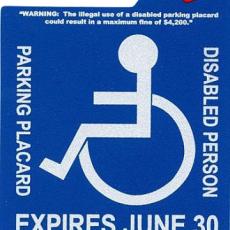The tide may be turning in the cottage-industry that has sprung up around ADA “tester plaintiffs” routinely suing hundreds of businesses for minor ADA violations and demanding quick cash for settlements. Plaintiff, Alyssa Carton, and her attorney, Sharon Pomeranz, filed 99 cases in New Mexico last year. Ms. Carton and Ms. Pomeranz had a rather unusual attorney-client relationship. Both of them executed secret agreements with a third-party organization called “Litigation Management and Financial Services” (LMFS), an organization which appears to be related to “Advocates for Individuals with Disabilities Foundation,” the organization responsible for over 1,000 lawsuits in Arizona that were summarily dismissed a few months ago.
The agreements state that Ms. Carton was entitled to $50 per case filed on her behalf. Ms. Carton claims LMFS told her she would receive more after a settlement was reached, but that was not the case. The attorney and LMFS kept all the money collected.
Ms. Carton also testified that LMFS and the attorney had complete control over whether and for how much to settle, and whether to offer the business a chance to fix the problem before suing. A hired driver took Ms. Carton around to “encounter the barriers” at the 99 businesses but often the driver had already gone to the location and observed a potential violation. She was driven to the location just to be photographed, documenting her physical presence at the location.
A judge in New Mexico recently found all 99 New Mexico lawsuits were malicious and recommended their dismissal. Magistrate Judge Molzen wrote, “It appears that Attorney Pomeranz and LMFS are using the judicial process to harass defendants into settlements to obtain financial gain … and not to remedy ADA violations.” (http://www.kob.com/kobtvimages/repository/cs/files/NM%20ABQ%20Carton%20recc%207%2010%2017.pdf)
The complaints were identical except for the name and addresses of the defendants and the specific alleged violations. The complaints were drafted even before Ms. Carton had visited the businesses. They were riddled with misspellings, and contained false statements. The attorney avoided paying steep filing fees by pleading that Ms. Carton was impoverished. Such filings are relatively common, but not for cases being handled by well-financed attorneys, who ordinarily front filing fees.
Now that the lawsuits have been dismissed, Ms. Carton may now be on the hook paying back the $40,000 in filing fees to the court that should have been paid. The court also invited the 99 affected businesses to request sanctions against Ms. Carton and her attorney.
Ms. Carton’s story sounds eerily familiar to the claims mde by California ADA plaintiffs, such as Daniel Delgado of Madera, California, a former client of Tanya Moore. Mr. Delgado also claims that he was told businesses would get a chance to fix the problems before a lawsuit was filed, and that he received very little money from the settlements reached on his behalf. (http://abc30.com/news/action-news-investigates-ada-lawsuits/1319280/)
Given the changing litigation landscape, we caution business owners to consult with legal counsel and to carefully consider how to respond to an ADA complaint. An aggressive defense may be the best defense.
Written by Alison H. Samarin

